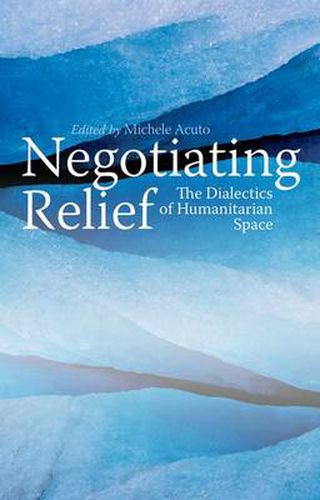Readings Newsletter
Become a Readings Member to make your shopping experience even easier.
Sign in or sign up for free!
You’re not far away from qualifying for FREE standard shipping within Australia
You’ve qualified for FREE standard shipping within Australia
The cart is loading…






While humanitarianism is unquestionably a fast-growing subject of practitioner and scholarly engagement, much discussion about it is predicated on a dangerous dichotomy between ‘aid givers’ and ‘relief takers’ that largely misrepresents the negotiated nature of the humanitarian enterprise. To highlight the tension between these relationships, this book focuses on the ‘humanitarian spaces’ and the dynamics of ‘humanitarian diplomacy’ (both ‘local’ and ‘global’) that sustain them. It gathers key voices to provide a critical analysis of international theory, geopolitics and dilemmas underpinning the negotiation of relief. Offering up-to-date examples from cases such as Kosovo and the Tsunami, or ongoing crises like Haiti, Libya, Darfur and Somalia, the contributors analyse the complexity of humanitarian diplomacy and the multiplicity of geographies and actors involved in it. By investigating the transformations that both diplomacy and humanitarianism are undergoing, the authors prompt us towards a critical and eclectic understanding of the dialectics of humanitarian space. Negotiating Relief aims to present humanitarianism not only as a relief delivery mechanism but also as a phenomenon in dialogue with both localised crises and global politics.
$9.00 standard shipping within Australia
FREE standard shipping within Australia for orders over $100.00
Express & International shipping calculated at checkout
While humanitarianism is unquestionably a fast-growing subject of practitioner and scholarly engagement, much discussion about it is predicated on a dangerous dichotomy between ‘aid givers’ and ‘relief takers’ that largely misrepresents the negotiated nature of the humanitarian enterprise. To highlight the tension between these relationships, this book focuses on the ‘humanitarian spaces’ and the dynamics of ‘humanitarian diplomacy’ (both ‘local’ and ‘global’) that sustain them. It gathers key voices to provide a critical analysis of international theory, geopolitics and dilemmas underpinning the negotiation of relief. Offering up-to-date examples from cases such as Kosovo and the Tsunami, or ongoing crises like Haiti, Libya, Darfur and Somalia, the contributors analyse the complexity of humanitarian diplomacy and the multiplicity of geographies and actors involved in it. By investigating the transformations that both diplomacy and humanitarianism are undergoing, the authors prompt us towards a critical and eclectic understanding of the dialectics of humanitarian space. Negotiating Relief aims to present humanitarianism not only as a relief delivery mechanism but also as a phenomenon in dialogue with both localised crises and global politics.